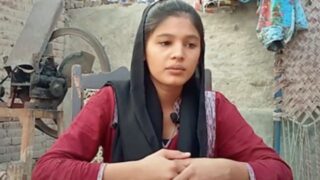Bonded labor is an endemic plague that constraints 3,5‒4 million people to work in inhuman conditions. The government has not been able (or willing) to solve the problem.
by Marco Respinti


The Pulitzer Center on Crisis Reporting operates in Washington, D.C., as a news media organization focusing on issues of international interest that other media outlets are not that eager to publish. Established in 2006, it has nothing to do with the famous Pulitzer Prizes, which are administered by Columbia University, in New York City, for achievements in journalism. Nonetheless, both honor the memory and legacy of Hungarian citizen Pulitzer József (1847–1911), who made a career as a politician and newspaper publisher after becoming a US citizen as Joseph Pulitzer in 1867.
Recently, the Center featured a three-part documentary entitled “Bonded by Brick: The Story of Modern-Day Slavery in Pakistan,” circa 40 minutes long. It is produced by The Centrum Media (TCM), Pakistan’s first digital news platform, launched in January 2017 after having been founded in November 2016 by Talha Ahad, a multimedia journalist and documentary filmmaker. Active in Islamabad, Pakistan, and London, the UK, Ahad presently serves as TCM’s CEO. “Bonded by Brick” uncovers Pakistan’s pressing social ill of modern slavery that exists in almost every rural and urban areas across the country.
The title of the documentary owes to the fact that one of the foremost examples of slave labor in Pakistan today is connected to the work in kilns where bricks for constructions are made. It is estimated, the documentary reports, that in the country there are more than 3,5‒4 million bonded laborers, around 20,000 of whom work in brick kilns in harsh, severe, often inhuman conditions. Workers have no guarantees and no rights. They are chained to the places that employ them—or bonded by the bricks they manufacture.
Featuring workers as testimonials plus experts and lawyers, the movie documents the tireless efforts of Syeda Ghulam Fatima to alleviate their conditions, trying to build a better future for them. She is a well-known Pakistani human rights activist, who serves as the General Secretary of Lahore-based Bonded Labour Liberation Front Pakistan (BLLF). For her activism, she has been shot, electrocuted, and beaten several times.


Stories told in the documentary are almost unbelievable. For example, that of Naveed, a 17-year-old worker in one of those nightmarish workplaces. In the first part of the movie, he tells how one of his kidneys was forcefully taken from him by the kiln owners to pay back a debt his family owed. This staggering practice illustrates how forced human harvesting, which in the Peoples’ Republic of China is a flourishing industry protected by the Communist regime, is a curse that infest many areas and countries of Asia.


Legislation‒to do nothing
The 2004 “United Nations Global Compact” is a non-binding pact aiming at inducing companies to pursue socially responsible policies. Consisting, upon its launch in 2000, of 9 principles, it has now 10. The fourth defines “bonded labour or debt bondage” (international conventions and documents use these two expressions interchangeably) as “an ancient practice still used in some countries where both adults and children are obliged to work in slave-like conditions to repay debts of their own or their parents or relatives.” In 2014, a report by the “International Labour Organization” (ILO)—a UN agency for advancing social and economic justice through better international labor standards—stated that millions of Pakistan’s poorest people remain trapped in “bonded labour,” working for little or no money to repay their or their families’ debts to employers, despite legislations prohibiting it.
In fact, in 1992 Pakistan introduced the “Bonded Labour System (Abolition) Act, (BLSA)” that included imprisonment and fines for offenders. It was followed by the “Bonded Labour System (Abolition) Rules” (BLSAR) in 1995. But, in 2001, “Bonded Labour in Pakistan: An Overview,” a study that the Pakistan Institute of Labour Education and Research prepared for the first ILO Global Report, noted that “elimination of bonded labour has not been accorded a priority of government at any level.” The study went on to state that “[t]here is a disquieting trend towards district administration and judiciary being more sympathetic to offenders rather than bonded labour, and often refusing to consider the most blatant evidence. Many local officials are not even aware of their obligations for enforcing relevant laws. Offenders are themselves powerful or protected by local and national elites. Major political parties reflect the interests of the wealthy and are hence uninterested in seriously taking up the cause of bonded labour.”
In the following years, ILO was able to highlight the important interface between labor, debt, and bondage in Pakistan. This overall situation is made even worse by the fact that, despite legislation, after more than two decades from the BLSA—as the US Department of State found in 2014—Pakistani officials did not secure any conviction under the law. After another decade, the situation is not better. Research documents that in the country, beyond the kilns portrayed in the TCN’s movie, modern slave workers are widely employed in agriculture as well as in the tanning and carpet industries. This happened in the past and continues to happen today.


Unbelievable conditions
Landlords even detain their indebted workers in private prisons until they repay their debts through unpaid labor, and this only occasionally results in police action. A 2019 study by DAI Global—a private development company based in Bethesda, Maryland, and funded by USAID, the agency of the US government for foreign aid, as well as by the United Kingdom government—verified that when migrant farmers of Thar, a region near the Indian border and predominantly Hindu, tried returning home after the massive drought of 2015‒2018 ended, landlords prevented them on the pretext that they owed several years’ worth of rent, which had to be repaid through unpaid labor.
Women farmers, who do most of the cotton picking in Pakistan, the world’s fourth-largest cotton producer, are especially vulnerable. According to the “Rural Women in Pakistan Status Report 2018” by the UN Entity for Gender Equality and the Empowerment of Women, commonly known as “UN Women,” 60 percent of women’s agriculture work was unpaid, and of course the situation is not any better now. Women are not captured into the bonded labor system by choice. Commenting the 2018 UN Women report, Yasmin, a mother of four, told Al Jazeera—the Qatari state-owned news television network—that “[h]usband’s illness, no money for medicine, deaths, children, desperation, household expenses and other problems forced me to take this route.” At a kiln, situated just over 20km outside Pakistan’s bustling metropolis Lahore, a bonded laborer is required to produce 1,000 bricks a day for which he or she in 2018 received 960 Pakistan rupees, amounting to less than US$3,5 today. “I’ve been working like this for a decade now,” testified Yasmin. “If I get sick or pregnant and am unable to work, they add those days lost to the advance I have taken. If I borrow another 500 rupees […], they will write down 1,000 rupees […].”
In Kot Momin town in Pakistani Punjab, bonded farmers work round the clock picking and processing oranges that dominates the domestic market, as well as the country’s major export destinations like Indonesia, the Middle East, and the Russian Federation. Among those who toil Kot Momin’s fertile lands are bonded laborers like Ansar Ali and his wife, who, in December 2019, told their story to “Deutsche Welle” commonly known as “DW,” a German state-owned international broadcaster. The couple worked around 16 hours a day, seven days a week, to make ends meet. Over the years, the family’s debt increased manifold and, when interviewed, Ali had no idea how he was ever going to repay it. “The deeper you get into the debt trap, the less hope there is you can ever get out of it,” Ali explained DW. “It’s a life of slavery I will probably never get out of.”


In November 2023, “Dawn”—the oldest and major Pakistani newspaper in English, and the main outlet for publishing press releases by the government and the Supreme Court—reported the disturbing experience of Saina, a child who was abducted when she was seven, and whose whereabouts remained unknown to her family for several years. When the family eventually found her, she was working as a maid in the town of Sadiqabad, in Punjab. Her body was covered in bruises. It was evident that she had gone through physical and possible sexual abuse. Estimates from UNICEF, the UN Children’s Fund, indicate that approximately 3.3 million children in Pakistan are ensnared in child labor.
There is heroism too
In 2009, Pakistani citizen Veeru Kohli (1964‒2023) received the Frederick Douglas Freedom Award, an annual initiative of Free the Slaves, an NGO based in Washington, D.C., and the John Templeton Foundation, a philanthropic organization based in West Conshohocken, Pennsylvania. After escaping from a bonded labor camp in 1998, she devoted her life to this cause and helped liberate nearly 4,000 brick kiln workers across the Sindh province in Pakistan.


Her instincts responded when the master at Umerkot had not allowed her to marry her daughters off: “In 1998 we were all set for our daughters’ wedding, our landlord Suleman Bhatti physically assaulted me and my son Pirbhu as he was ‘interested’ in my daughters.” “Ms. Kohli’s struggle inspired scores of labour rights activists not only in Pakistan, but also abroad” the Human Rights Commission of Pakistan (HRCP) tweeted on her demise.
Today, her legacy lives on in a country afflicted by a complete lack of political will from the state to act against large landlords. This is particularly true in Sindh and Baluchistan, the largest province of Pakistan, which is only one of the three parts in which the homonymous historical region is divided (the other two being administered by Iran and Afghanistan). The fact that some of those landlords are either elected to provincial assemblies or act as otherwise important local powerbrokers adds insult to injury.









